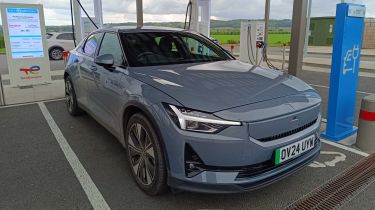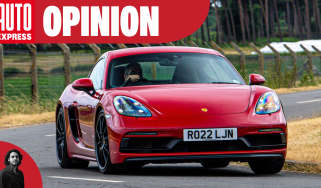Salary sacrifice car schemes: what are they and how do they work?
A salary sacrifice car scheme offers a simple and cost-effective alternative to leasing, but is it right for you? Here’s all you need to know.

With so many ways to drive a new car, it can be confusing to know which is the most financially astute for you. As well as Personal Contract Purchase (PCP) and Personal Contract Hire (PCH) plans, another option is a salary sacrifice car scheme, which uses a portion of your pre-tax income to pay the monthly lease cost – similar to the Cycle to Work scheme.
A salary sacrifice car scheme is best suited to those choosing an electric car or low emission vehicle, but can be used for other cars. Is it the right choice for you? Read our guide to find out.
What is a salary sacrifice car scheme?
As the name suggests, you sacrifice a part of your gross salary to pay for a new car. Unlike a leasing deal, where the money comes from your take-home pay, a salary sacrifice car scheme (also sometimes called ‘salsac’) deducts the money from your pre-tax income.
You agree on an amount of money with your employer to be used to pay for a car. This sum is then deducted from your pre-tax salary to cover the monthly payment on the car you have chosen. The employer leases a car from a third-party provider. Your employer then leases the car to you. These deals tend to run for between two and four years, and the employee can drive the car for business and private use.
The advantage of this is you don’t pay National Insurance or income tax on the salary sacrifice payment amount. This is unlike a normal lease deal where you would pay out of your take-home salary, so a salary sacrifice car scheme means you have more in your pay packet after you have paid tax and the car payment.
For employers, the salary sacrifice car scheme has tax advantages with reduced National Insurance contributions. It is also a means to attract and retain staff with the lure of lower lease costs or driving a better car than they might have expected.
What are the benefits of a salary sacrifice car scheme?
The big appeal of a salary sacrifice car scheme to employees is there is no upfront initial payment or deposit. You simply choose the car you want and start leasing the car through a third-party provider partnered with your employer.
The lease amount is a flat rate taken from your pre-tax salary each month. This is usually less than it would cost to lease the car from a dealer or finance provider. It allows most salary sacrifice car scheme users to drive a better car than they might otherwise be able to fund or pay a lower monthly sum for the car they want.
A salary sacrifice car scheme usually includes all running costs except fuel or charging. As with a company car, the scheme will include road tax, insurance, servicing, maintenance and breakdown cover.
A big attraction of salary sacrifice car schemes for companies is that it removes the juggling act of who gets which car. Instead of the company deciding car allocation, and risking upsetting some employees, it is up to the employee to choose their car through the scheme.
What are the downsides of a salary sacrifice car scheme?
A salary sacrifice car scheme means your take-home salary is lower than it would be if you didn’t lease a car in this way. Even though your disposable income could be higher with a salary sacrifice car scheme, a lower salary after income tax and National Insurance are deducted could affect how much you can borrow for a mortgage or loan.
A lower salary can also have a bearing on your life insurance, which is usually worked out on post-tax salary. It can also mean you miss out on a refund of pension contributions with a defined benefit pension scheme if you leave a job within the first two years, because a salary sacrifice car scheme counts as employer contributions.
Running a car through a salary sacrifice scheme is classed as a benefit, so you will have to pay Benefit in Kind (BIK). This is calculated on the car’s BIK taxation class, so it favours electric and plug-in hybrid cars over petrol and diesel cars. From 1 April 2025, EVs pay BIK at 3 per cent, rising by 1 per cent per year in 2026 and 2027.
If you earn the National Minimum Wage, you won’t qualify for a salary sacrifice car scheme, as the rules don’t allow your salary to drop below the minimum threshold after deductions. You may also lose out on some benefits, such as Statutory Maternity Pay, if your salary drops below the required threshold.
Lastly, there may be a limited choice of cars depending on what is available through the lease provider for your employer’s salary sacrifice car scheme.
Frequently Asked Questions
No, but the scheme favours EVs and ultra-low emissions vehicles with a carbon dioxide figure of 75g/km or less. This is to encourage more drivers into lower emissions cars. For most petrol, diesel and hybrid models, the benefits of a salary sacrifice car scheme are marginal compared to a direct lease deal.
Tell us which new car you’re interested in and get the very best offers from our network of over 5,500 UK dealers to compare. Let’s go…









